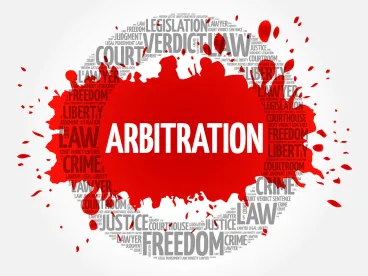Ruling in a class action brought against Uber Technologies, Inc., the U.S. Court of Appeals for the First Circuit recently held that the company's arbitration clause could not be enforced because it was not "reasonably communicated" to its customers during the online contracting process.
The decision is a stark reminder that great attention needs to be paid to the physical and visual details of an online contract that contains an arbitration provision.
The named plaintiffs downloaded the Uber app on their cellphones and used it to create Uber accounts. They later sued Uber for charging unnecessary fees to passengers. The district court granted Uber's motion to compel arbitration and dismissed the case, but the appeals court reversed and remanded the case for further proceedings.
The court acknowledged that the Federal Arbitration Act (FAA) reflects a liberal federal policy favoring arbitration agreements. It cautioned, however, that in deciding a motion to compel arbitration a court must first determine whether a "written agreement to arbitrate" exists.
The court applied Massachusetts law to this contract formation question, noting that the Massachusetts Supreme Judicial Court has not addressed the issue of contract formation for online agreements. From a lower court Massachusetts decision, the First Circuit discerned that Massachusetts law requires a two-step inquiry: first, whether the contract terms were "reasonably communicated" to the plaintiffs, and secondly, whether the terms were "accepted."
Uber argued that its online presentation was sufficiently conspicuous to bind the plaintiffs whether or not they chose to click through the relevant terms. The appeals court disagreed, emphasizing that the link to Uber's Terms of Service "did not have the common appearance of a hyperlink" because it was presented in a gray rectangular box in white bold text, rather than being "blue and underlined." Moreover, the court found, Uber's web screens contained other terms displayed with similar features. According to the court, "[i]f everything on the screen is written with conspicuous features, then nothing is conspicuous."
The First Circuit joins the U.S. Courts of Appeals for the Second and the Ninth Circuits in denying an online arbitration agreement on the grounds that it was not clearly and conspicuously presented to the company's customers.




 />i
/>i
